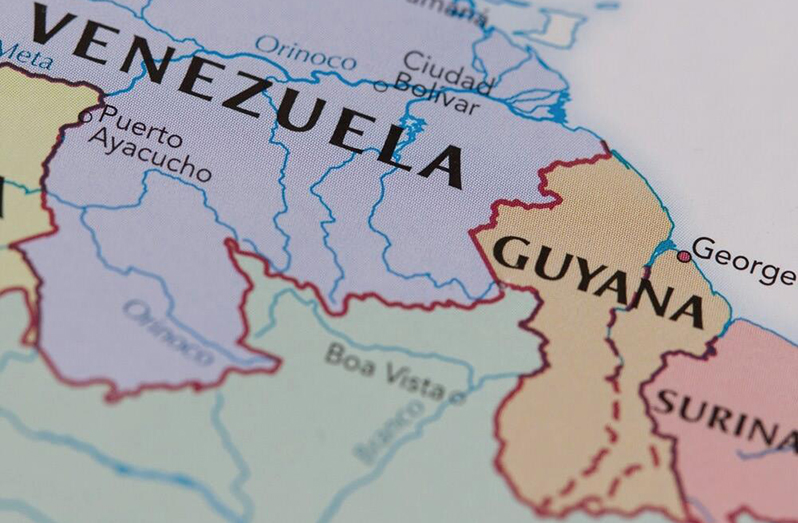THE Venezuelan controversy and Venezuela’s threats against Guyana’s sovereignty by its declaration that it will seize most of Guyana’s territory has been in the consciousness of most of our readers, and we are, today, making another offering on the issue. We will briefly review the raison d’etre of these threats, and for the purpose of brevity, will do so in point form:
(1) In the 1960s, the Cold War was being fought with varying intensity in all the continents, and the principal contestants were the USSR with its allies and satellites on one side, and the USA on the other. In the Americas, Cuba, an island close to the USA, had become a Communist State and brought USSR power to its doorstep. The USA was determined that no other Communist State would emerge in its backyard. Just at this time, Britain was withdrawing from its Caribbean colonies, and by 1960 it was known that Britain was soon going to give Guyana its Independence. In the Cold War hysteria, several people claimed that Guyana would become another Cuba if it became independent.
Venezuela, unlike today when it is a country whose Government hates the US and is allied with those countries who are damaging to the USA, was an ally of the USA, and was tasked with delaying the Independence of Guyana.
Venezuela, therefore, opposed the independence of Guyana in 1962, claiming that the 1899 Arbitral Award setting the boundary of Guyana and Venezuela was rigged, though Venezuela had fully accepted this boundary for over 60 years until then.
The basis of this accusation was the posthumous letter from Mallet-Prevost, one of the junior lawyers representing Venezuela at the Arbitral Tribunal who claimed that Britain’s award was fraudulent. For 13 years after the Mallet-Prevost accusation was known, most Venezuelan intellectual opinion gave little or no credence or cognisance to it. In 1962, it provided the politicians with a causus that they had been searching to use to delay Guyana’s independence. Britain was very anxious to withdraw from British Guiana, as Guyana was then known, and this led to the Geneva Agreement of 1966, whereby the controversy was given a four-year period to be resolved, failing which, it was to be referred to the UN Secretary-General who would then determine a vehicle for resolution.

Guyana was then given its independence in the same year, with the 1899 Award and its international boundary intact. The Mallet-Prevost posthumous letter was the first reason proffered by Venezuela for claiming that the 1899 Award was void.
(2) The second reason for Venezuela’s threats and bellicosity against Guyana is their greed to possess Essequibo, a territory blessed with valuable natural resources, including gold, diamonds, manganese, bauxite, rare earth, forests, rare animals, hydropower and world-class tourist attractions such as the Kaieteur Falls.
The recent discovery of rich offshore oil deposits has sharpened their greed, and this is manifested in their strident threats to seize Guyana’s territory, which is all about the riches of Essequibo awaiting to be snapped up by Venezuela. The Mallet-Prevost posthumous letter was now used to cover their unvarnished greed.
(3) The third reason appears and then disappears: Next year, Venezuela will be holding its national elections, and President Maduro hopes to be re-elected. But his chances of reelection are nil, since he has turned Venezuela, once one of the richest countries in the world, into one of the poorest, with a quarter of the population of nearly 8 million fleeing the country as economic refugees. Therefore, he has resorted to the well-tried strategy of starting a war with a weak neighbour to whip up nationalism and win electoral support. But Guyana is not the pushover he and his lieutenant Delcy Rodriguez had imagined, and they experienced their first knockout with the ICJ decision, which restrains them from invading and seizing Guyana’s territory.
Venezuela could find no valid reason for claiming Guyana’s territory, since talk of the Mallet-Prevost posthumous letter and Essequibo being part of the Captain Generalcy of Venezuela when part of the Spanish Empire had long been negated in the deliberations and findings of the Arbitral Tribunal of the 1890s. Finding no credible or valid legal basis for their claim has driven Venezuelan extremists into a semi-demented state of lawlessness, manifesting itself in violence and military adventurism. In our defence, so far, Guyana has defeated Venezuelan extremists, diplomatically, and is now working to have our allies give full and adequate military support to the Guyana Defence Force to meet any Venezuelan military invasion. Such military support would immediately cower extremist Venezuelan bullyism, and act as a restraint on their military adventurism, and avoid any intrusion or invasion, thus maintaining the status quo.



.jpg)








